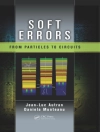This edited book on “Advances in Electrical Systems and Innovative Renewable Energy Techniques” is an outcome of the selected papers presented at the International Conference on Electrical Systems & Automation, (ICESA 2023) held from 29 to 30, May 2023 at the Faculty of Sciences and technologies, Al Hoceïma, Morocco.
This edited book is divided into 2 volumes. This volume will be divided into 3 parts, each devoted to distinct yet interconnected aspects of the subject matter.
The first part focuses on various advancements in renewable energy techniques. It explores topics ranging from biomass combustion characteristics and hydrogen production using photovoltaics to the assessment of wave energy potential and the performance evaluation of solar collectors. These research papers not only shed light on the current state-of-the-art technologies but also offer valuable insights into their implementation, efficiency, and potential impact on the energy landscape.
The second part focuses on interdisciplinary approaches between electrical and renewable energy systems and includes research chapters on photovoltaic (PV) energy, wind energy, and microgrid systems.
For PV systems, several topics and issues are addressed such as modeling of PV systems using single diode model and double diode model; analytical and numerical methods for extraction of PV parameters; extraction of maximum power from PV system using integral SMC strategy, sun-pointing orientation, Su Do Ku, and ANN algorithms; and fault detection and classification based on metaheuristic technique, and feedforward neural network.
For the wind system, its modeling is first discussed, and then the control of the wind system using direct power, PI, fuzzy logic, sliding mode, and time delay strategies is analyzed.
In the third part, the chapters focus on efficient energy management, optimization of microgrids, and the use of advancedtechnologies to improve energy performance. Researchers present innovative solutions to address the challenges of energy efficiency, grid responsiveness, and the integration of new energy sources.
Inhoudsopgave
Part One: Advances in innovative renewable energy techniques.- 1. Production of hydrogen by photovoltaic using seawater.- 2. A numerical evaluation of the energy potential of waves along Morocco’s Atlantic and Mediterranean coast.- 3. Assessment of Bifacial Modules in an Agri Voltaic System installed in Agadir, Morocco.- 4. Numerical analysis of a parabolic trough collector absorber with a Two-Straight-Tubes Exchanger.- 5. Long-Term Investigation of Hybrid System for Building Integration: PTC-Based Heating System and Power Generation (CPV/T).- 6. Combustion characteristics of biomass pellet fuels in a fixed-bed micro-gasifier cook stove in Senegal.- 7. Deep Learning Approach for Solar Irradiance Forecasting: A Moroccan case study.- 8. PV Power Forecasting Using Deep Learning and Physical Models: Case Study of Morocco.- Part two: Interdisciplinary approaches in renewable energy systems.- 9. PV Modelling and Extracting the Single-Diode Model Parameters: A Review Study on Analytical and Numerical Methods.- 10. An experimental assessment of the single and double-diode models: possibility of a hybrid approach.- 11. Intelligent PV Fault Detection and Categorization Based on Metaheuristic Algorithm and Feedforward Neural Network.- 12. Detection and Classification of Faults in PV Systems Based on Thermal Imaging and Fuzzy Logic Algorithm.- 13. Integral SMC Strategy for MPPT of the Solar PV System under Varying Climatic Conditions.- 14. Assessing MPPT Techniques for Nanosatellite EPS in Sun-Pointing Orientation: A comparative Study.- 15. A Comparative Study of Various Su Do Ku Algorithms for Improvement of Generated Power under Partial Shading Conditions.- 16. Modeling and Control of a Standalone PMSG Wind Generation System to Extract the Maximum Power Based on Direct Power Control.- 17. A Comparative Study of the ADRC and PI Controller of a Wind Turbine Driven by a PMSG.- 18. Theefficiency of fuzzy logic control on the power stabilization of wind turbine.- 19. Optimizing Wind Turbine Control with Sliding Mode and Time Delay Strategies.- Part three: Sizing and management of electrical grid.- 20. Sizing and Simulation of an Alternative Microgrid System.- 21. Sizing Renewable Energy by Using Genetic Algorithm.- 22. Micro-grid design and optimzation using COOT optimization algorithm.- 23. Feasibility study of the design of a floor heating system for the wet rooms of a Hammam using solar photovoltaic.- 24. Grid-tied Energy Management System for hybrid microgrid using advanced-PSO algorithm.- 25. A control strategy for energy cost reduction, peak shaving and power factor correction using batteries.- 26. Robust Deterministic Optimization Approach for Optimal Reactive Energy Management in Electrical Transmission Network.- 27. A comparative study of metaheuristics algorithms applied for optimal reactive power dispatchproblem considering load uncertainty.- 28. Management of battery-hydrogen tank storage system of electric vehicle energy using machine learning classification methods: Comparative Study.- 29. Design and simulation of an intelligent grid-connected MPPT inverter with battery storage using ANN algorithm
Over de auteur
Pr. BENDAOUD Mohamed received the M.Sc. and Ph.D. degrees in Electrical Engineering from Cadi Ayyad University, Marrakech, Morocco, in 2012 and 2019, respectively. He is currently an associate professor at National School of Applied Sciences (ENSA) of Khouribga, Sultan Moulay Slimane University-Morocco.He has published over 15 papers (book chapters, international journals, and conferences/workshops), and 3 edited books. He is the founder and General Chair of the International Conference on Electrical Systems & Automation. He has served and continues to serve on the technical program committees and as reviewer of numerous international conferences and journals such as Journal of The Franklin Institute, Mechatronic Systems and Control. He is the editor-in-chief of the new ambitious ”journal of electrical systems & automation” (JESA). He is the deputy director of the science and technology laboratory for engineers.His research interests include: Modelling and control of Grid Connection for Photovoltaic and Wind Energy; Modelling and simulation methodologies for multidisciplinary systems, in particular Bond Graph-based; Control of power converters.












